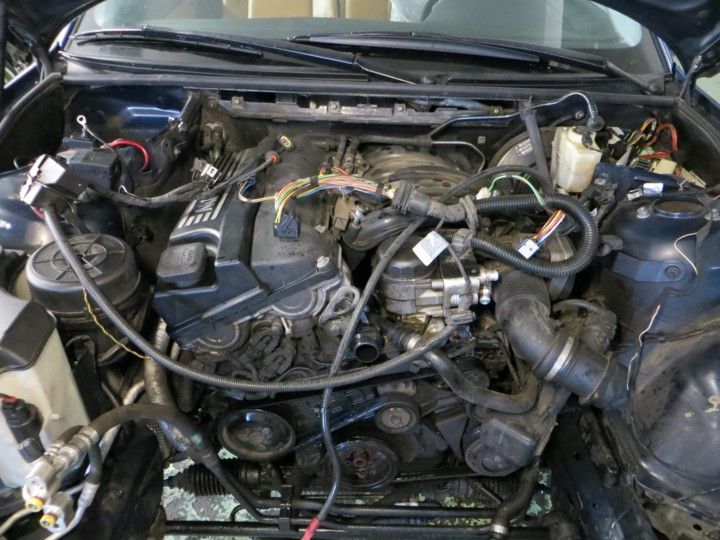Crucial Considerations for Selecting the most effective Engine for Your Needs
In the world of selecting the perfect engine to satisfy your demands, several vital factors demand careful consideration to ensure optimal efficiency and efficiency. From the nuanced equilibrium between power and performance to the often-overlooked aspects of upkeep and service needs, each element plays a pivotal role in figuring out one of the most appropriate engine for your details demands. As the complexity of engine technologies remains to develop, critical one of the most fitting alternative necessitates a deep understanding of the interaction between numerous considerations. By checking out the intricate web of aspects that underpin this decision-making procedure, a clearer path arises in the direction of selecting an engine that not only satisfies yet exceeds your assumptions.
Power and Efficiency
When reviewing engines for optimum efficiency, it is critical to prioritize both power result and efficiency. Power result measures the capability of an engine to generate energy, which straight affects its performance. A high power result is vital for requiring tasks such as heavy-duty applications or high-speed requirements. It makes certain that the engine can take care of the work successfully and effectively. Nevertheless, power alone is not sufficient; efficiency plays a significant duty in establishing the total performance of an engine. Performance refers to just how well the engine transforms gas into useful power. A much more efficient engine will deliver much better gas mileage, reduced emissions, and reduced operating prices. Striking the best equilibrium in between power output and performance is essential to picking an engine that satisfies your specific requirements. When making this decision, it is necessary to consider variables such as the intended usage of the engine, environmental effect, and lasting expense implications. By very carefully evaluating both power and performance, you can choose an engine that provides optimal performance and fulfills your demands properly.
Gas Effectiveness and Economy
Fuel efficiency refers to the engine's capacity to transform gas into energy with minimal waste, straight influencing operating prices and ecological sustainability. Engines with higher gas effectiveness not only reduce gas costs but additionally decrease carbon exhausts, contributing to a greener operation.

Compatibility and Application
Taking into consideration the gas effectiveness and economic situation of an engine, the following essential aspect to address is its compatibility and application within details functional contexts. Compatibility describes how well the view it engine incorporates with the overall their website system or devices it powers. It involves aspects such as physical dimensions, installing options, electrical user interfaces, and control systems. Guaranteeing compatibility is important to protect against issues such as getting too hot, resonances, or power discrepancies (bmw 318ti).
Moreover, the application of the engine is similarly crucial. Various engines are developed for certain objectives, whether it be commercial machinery, marine vessels, vehicles, or power generators. Comprehending the desired application permits the selection of an engine that can deliver the necessary power outcome, torque, and functional features. A high-revving engine developed for performance automobiles would not be appropriate for durable building devices that needs high torque at reduced speeds.
Maintenance and Solution Requirements
Maintenance and solution requirements play a vital role in making sure the long life and optimal performance of an engine. Normal upkeep is important to stop breakdowns, extend the life expectancy of the engine, and keep its performance. When choosing an engine, it is essential to take my sources into consideration the producer's suggested upkeep routine and the schedule of service centers or certified technicians.
Aspects such as the regularity of oil adjustments, filter replacements, and general examinations can considerably affect the engine's efficiency. Some engines might call for even more frequent maintenance based on their design and use, while others might have longer periods in between upkeep checks. It is essential to follow these solution requirements to stay clear of pricey fixings and unanticipated downtime.

Expense and Budget Factors To Consider
Spending plan constraints frequently play a considerable function in the decision-making process when choosing an engine for a particular application. When considering the price and spending plan effects of choosing an engine, it is vital to analyze not just the preliminary acquisition price yet likewise the long-term expenses connected with maintenance, fuel consumption, and possible upgrades or fixings. It is crucial to strike an equilibrium between the upfront price of the engine and its total lifecycle costs to make sure that the chosen engine stays financially sustainable throughout its operational life expectancy.
Aspects such as fuel dependability, sturdiness, and effectiveness can straight influence the overall expense of ownership of an engine. While an extra pricey engine may have higher in advance costs, it might possibly result in lower upkeep and gas expenses over time, thus offering better worth in the lengthy run.
Conclusion

Fuel performance refers to the engine's ability to transform fuel right into power with minimal waste, directly influencing operating prices and environmental sustainability.Aspects affecting gas performance consist of engine design, combustion effectiveness, and total efficiency optimization. Additionally, choosing the proper gas type and quality as advised by the engine manufacturer can even more improve performance and lengthen engine life-span.
Engines with good service attributes and easily offered components can lower upkeep prices and decrease the time the engine is out of operation - bmw 318ti. It is essential to strike a balance between the upfront cost of the engine and its overall lifecycle expenses to guarantee that the selected engine stays economically sustainable throughout its operational lifespan